第34章 LETTER 5(7)
Abbadie says in his famous book,that the Gospel of St.Matthew is cited by Clemens,bishop of Rome,a disciple of the apostles;that Barnabas cites it in his epistle;that Ignatius and Polycarp receive it;and that the same fathers,that give testimony for Matthew,give it likewise for Mark.Nay your lordship will find,I believe,that the present bishop of London,in his third pastoral letter,speaks to the same effect.I will not trouble you nor myself with any more instances of the same kind.Let this,which occurred to me as I was writing,suffice.It may well suffice;for I presume the fact advanced by the minister and the bishop is a mistake.If the fathers of the first century do mention some passages that are agreeable to what we read in our evangelists,will it follow that these fathers had the same gospels before them?To say so is a manifest abuse of history,and quite inexcusable in writers that knew,or should have known,that these fathers made use of other gospels,wherein such passages might be contained,or they might be preserved in unwritten tradition.Besides which,I could almost venture to affirm that these fathers of the first century do not expressly name the gospels we have of Matthew,Mark,Luke,and John.To the two reasons that have been given why those who make divinity their profession,should study history,particularly ecclesiastical history,with an honest and serious application;in order to support Christianity against the attacks of unbelievers,and to remove the doubts and prejudices that the unfair proceedings of men of their own order have raised in minds candid but not implicit,willing to be informed but curious to examine;to these,I say,we may add another consideration that seems to me of no small importance.Writers of the Roman religion have attempted to show,that the text of the holy writ is on many accounts insufficient to be the sole criterion of orthodoxy:I apprehend too that they have shown it.Sure I am that experience,from the first promulgation of Christianity to this hour,shows abundantly with how much ease and success the most opposite,the most extravagant,nay,the most impious opinions,and the most contradictory faiths,may be founded on the same text;and plausibly defended by the same authority.Writers of the reformed religion have erected their batteries against tradition;and the only difficulty they had to encounter in this enterprise lay in levelling and pointing their cannon so as to avoid demolishing,in one common ruin,the traditions they retain,and those they reject.Each side has been employed to weaken the cause and explode the system of his adversary:and,whilst they have been so employed,they have jointly laid their axes to the root of Christianity:for thus men will be apt to reason upon what they have advanced."If the text has not that authenticity,clearness,and precision which are necessary to establish it as a divine and a certain rule of faith and practice;and if the tradition of the church,from the first ages of it till the days of Luther and Calvin,has been corrupted itself,and has served to corrupt the faith and practice of Christians;there remains at this time no standard at all of Christianity.By consequence,either this religion was not originally of divine institution,or else God has not provided effectually for preserving the genuine purity of it,and the gates of hell have actually prevailed,in contradiction to his promise,against the church."The best effect of this reasoning that can be hoped for,is,that men should f all into theism,and subscribe to the first proposition;he must be worse than an atheist who can affirm the last.The dilemma is terrible,my lord.Party zeal and private interest have formed it:the common interest of Christianity is deeply concerned to solve it.Now,I presume,it can never be solved without a more accurate examination,not only of the Christian but of the Jewish system,than learned men have been hitherto impartial enough and sagacious enough to take,or honest enough to communicate.Whilst the authenticity and sense of the text of the bible remain as disputable,and whilst the tradition of the church remains as problematical,to say no worse,as the immense labors of the Christian divines in several communions have made them appear to be;Christianity may lean on the civil and ecclesiastical power,and be supported by the forcible influence of education:but the proper force of religion,that force which subdues the mind,and awes the conscience by conviction,will be wanting.